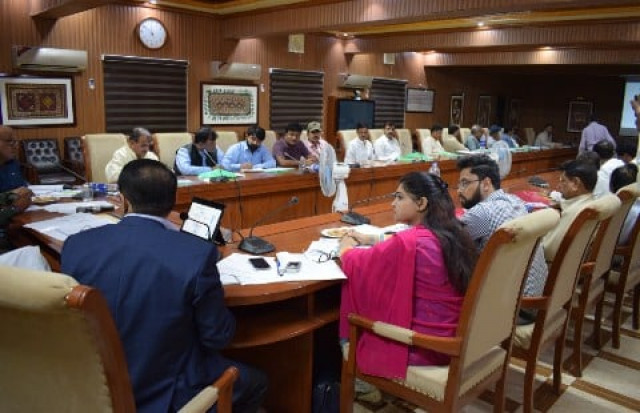AAP for reduction of stunting and malnutrition in Tharparkar
DHO says that birth spacing will help reduce malnutrition level in Thar

The meeting, District Coordination Committee for Nutrition (DCCN), was attended by representatives from different government and non-governmental organisations.
UNICEF Nutrition Officer Dr Mazhar Iqbal, presenting Global, National and Tahrpaerkar-specific malnutrition statistics, spoke about the measures and steps that can be taken to address the malnutrition situation in the region.
“From mother’s pregnancy to the child at the age of two years, 1,000 days are important to follow health directives for mother and child health,” he said adding that malnutrition has multiple underlying causes and conquering it required contributions from all departments, including health, education, fisheries, livestock, agriculture, population welfare, social welfare and local government.
ADC Mukhtiar Ali Abro said the ‘‘AAP programme has been made with latest scientific thoughts and ideas. A multi-sectoral approach to addressing nutrition challenges helps to leverage resources and ensure sustainability by tackling underlying causes through multiple reinforcing strategies’’.
Speaking to the participants District Health Officer (DHO) Dr Irshad Ahmed Memon stated that birth spacing will definitely be helpful to reduce malnutrition level in Thar.
“We have taken school health initiatives, district health teams are going into fields and plan to deworm 2,400 school children”.
Executive Director Sami Foundation, Ghulam Mustafa Khoso highlighted that a plan to make 400 villages of Tharparkar as Open Defecation Free (ODF), and an assessment to be conducted of 200 schools from the perspective of Wash Facilities’.






1724319076-0/Untitled-design-(5)1724319076-0-208x130.webp)












COMMENTS
Comments are moderated and generally will be posted if they are on-topic and not abusive.
For more information, please see our Comments FAQ